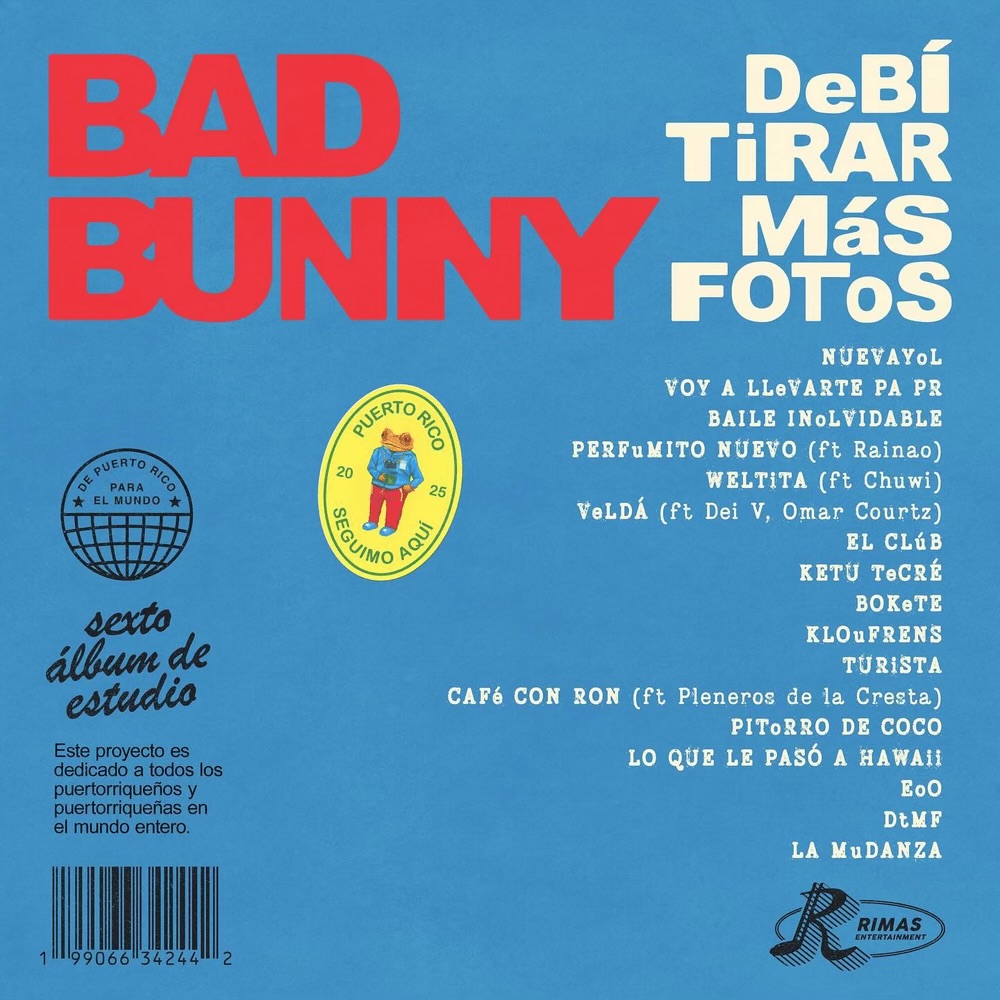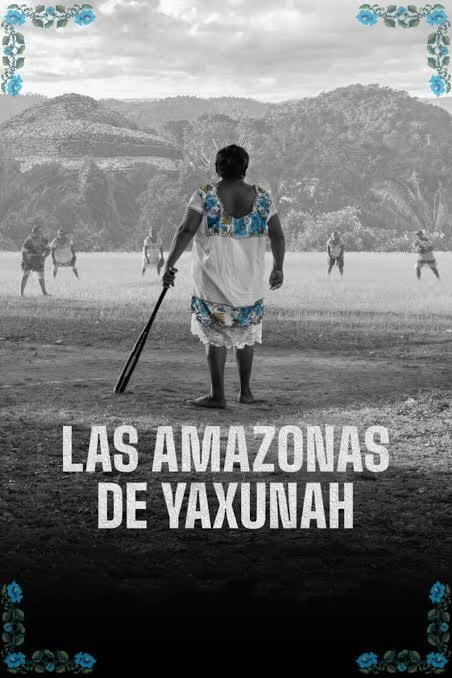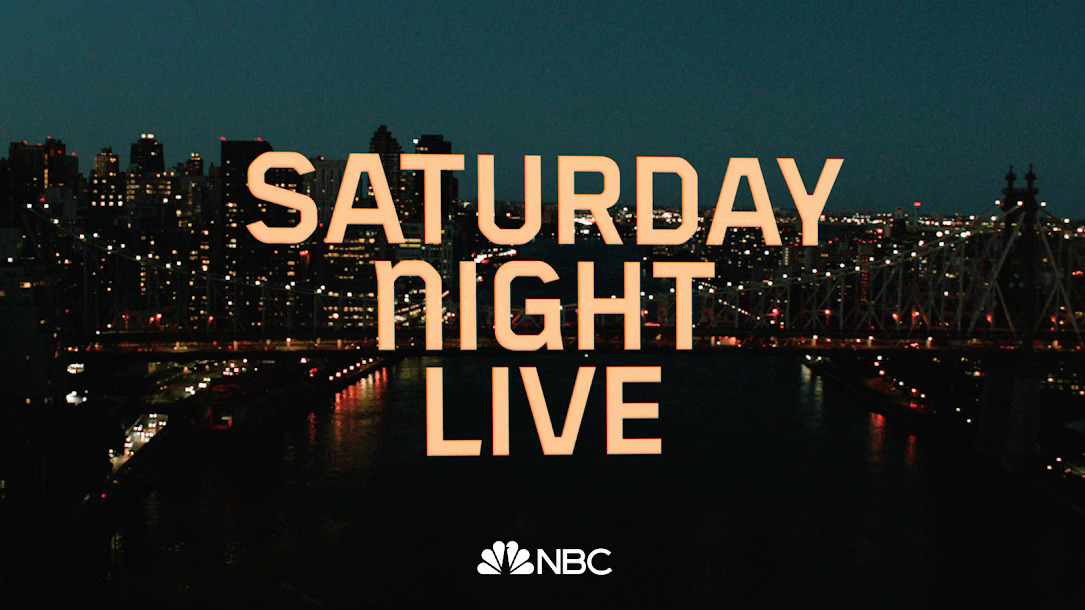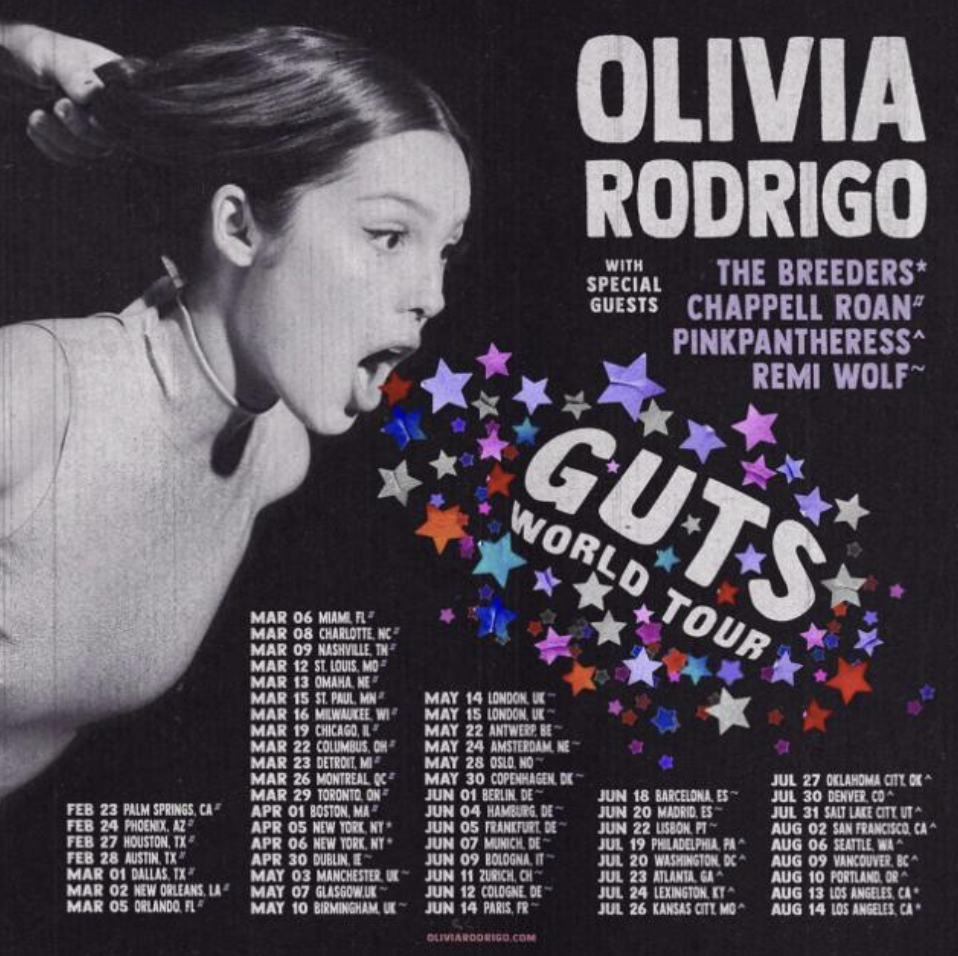Debi Tirar Mas Fotos (I should have taken more photos) is the latest album from Puerto Rican artist Benito Ocasio, better known as Bad Bunny or affectionately, El Conejo Malo. Released on January 5 2025 as a New Year’s present to his beloved fans, this album serves as both a heartfelt tribute to his homeland and a platform for advocacy where Ocasio addresses the challenges threatening his beloved island’s future. The album features a blend of traditional house rhythms, electronic production, and nylon stringed plena guitars, skillfully combining modern pop elements with classical Puerto Rican folk styles. With songs such as “Lo Que Paso En Hawaii” Bad Bunny passionately expresses his love for Puerto Rico and his desire to highlight the social and political issues that impact his people. His fans, particularly in Puerto Rican households like mine, have embraced the album with open arms, propelling it to the top of Spotify charts globally, including in the US, Italy, France, Portugal, Lithuania, and Latvia. Debí Tirar Más Fotos has also seen top 5 placements in several European countries such as Poland, the Netherlands, Estonia, Austria, and Belgium.
Given the album’s massive success, I was curious to hear what other Puerto Ricans thought about it. So, I interviewed fellow RHS junior Adriana Vega and Spanish teacher, Sra. Pérez, both of Puerto Rican heritage, to gain some insight into how this album resonates with Puerto Rican listeners.
Interview with Adriana Vega
What was your initial reaction to “Debí Tirar Más Fotos”?
The first time I listened to “Debí Tirar Más Fotos,” I immediately knew it was going to be a good album. His last album, Nadie Sabe Lo Que Va a Pasar Mañana, was good, but I feel like it didn’t live up to Un Verano Sin Ti, which was released right before it. I was worried that the same thing was going to happen again, but this one definitely did not disappoint.
Do you feel the album captures the essence of Puerto Rico and Puerto Rican identity? If so, how?
I think the album definitely captures the essence of Puerto Rico because Bad Bunny has always made Puerto Rico his main source of pride in his music. He constantly mentions it in his songs and even during his live performances. The song, “Lo que le pasó a Hawai,” has a really strong message because it speaks about the political problems in Puerto Rico. By addressing this in his music, he makes a powerful statement. The incorporation of salsa music also plays a huge role in showcasing our cultural identity.
Do you think Bad Bunny effectively addresses Puerto Rico’s social and political issues in his music?
I think Bad Bunny does address Puerto Rico’s social and political issues very well. Recently, during Puerto Rico’s election, he said he didn’t want to release an album because Puerto Rico was already suffering enough with the political turmoil. But when he finally released it, I loved how he mentioned the issues with the Penepe political party and their attempts to erase our country’s identity.
How do you feel about the way Puerto Rican culture and identity are represented in the album?
I think the way Puerto Rican culture and identity are represented in the album is amazing. Bad Bunny really shows what we are like as people in Puerto Rico. We love to party, dance, and spend time with our loved ones. I would say he’s one of the perfect people to represent our culture because he’s real. He doesn’t care what people think, and he’s unapologetically himself. To have him as a representation of Puerto Rico is an honor.
How do you feel about Bad Bunny using his platform to highlight Puerto Rico’s struggles?
I think Bad Bunny using his platform to highlight Puerto Rico’s struggles is an amazing thing because, why have such a big platform if you’re not going to use it for good? I’m glad that he chose to use his fame to bring attention to the issues happening in Puerto Rico.
How does it feel to see someone so proud of their Puerto Rican roots gain global fame while still advocating for the island’s issues?
It feels really empowering and honorable to see someone so proud of their Puerto Rican roots gain global fame while still advocating for the island’s issues. He has always stayed true to himself, even when faced with criticism, like when he was with Kendall Jenner. That’s when he released Nadie Sabe Lo Que Va a Pasar, which, even though I don’t think it was his best album, was still him showing that he was unbothered by public criticism. It’s normal for celebrities to face hate from the media, but Bad Bunny has always stayed true to his roots. He’s always been proud to be Puerto Rican, expressed that through his music, released relatable songs, and stood up for current events in his home country. I feel very proud to have him as a well-known Puerto Rican figure. He reminds me of who I would like to be if I ever became famous.
Adriana also mentioned that whenever she listens to Bad Bunny’s music, she feels “more connected to [her]home country,” underscoring the deep emotional bond that his music generates with his fans. For her, Bad Bunny’s music is not just entertainment—it’s a reminder of the culture, the pride, and the boriqua identity.
Sra. Pérez, another proud Puerto Rican, shared her thoughts on the album. She expressed the same sense of pride as Adriana, saying, “Me siento orgullosa que Bad Bunny está representando mi país.” (I feel proud that Bad Bunny is representing my country.) For her, Bad Bunny’s rise to fame and his unwavering commitment to showcase Puerto Rican identity is something that brings immense joy and honor to Puerto Ricans, both on the island and in the US community.
Bad Bunny’s Debí Tirar Más Fotos is not just an album; it’s a cultural phenomenon. It’s a testament to the power of music to represent identity, amplify social and political causes, and evoke pleasant memories of a homeland. Songs like “Perdimos La Playa” reflect growing anxieties over gentrification, while others like “Pasado Pisado” serve as both reflections and warnings about the loss of cultural memory in a digital age. His work echoes that of other artists using their platforms for cultural advocacy. Think of Beyoncé’s Lemonade, which reclaimed Black Southern identity, or Rosalía’s Motomami, which redefined flamenco through a modern, feminist perspective. In today’s music landscape, albums are more than just playlists—they’re statements. And Bad Bunny’s statement is loud, proud, and Puerto Rican. In a time when many artists follow trends or commercial hits, Bad Bunny has managed to merge commercial success with cultural integrity. Whether it’s through his songwriting aptitude, performances, or interviews, he continues to speak for Puerto Rico on a global stage. From climate disasters to political unrest, from diaspora identity to the importance of family, Debí Tirar Más Fotos is a reminder that representation in music isn’t just about being seen—it’s about being heard. As the album continues to top the charts and reach new audiences, it’s clear that Bad Bunny is not just a global superstar, he’s a vital megaphone for Puerto Rican pride, advocacy, and heritage.








